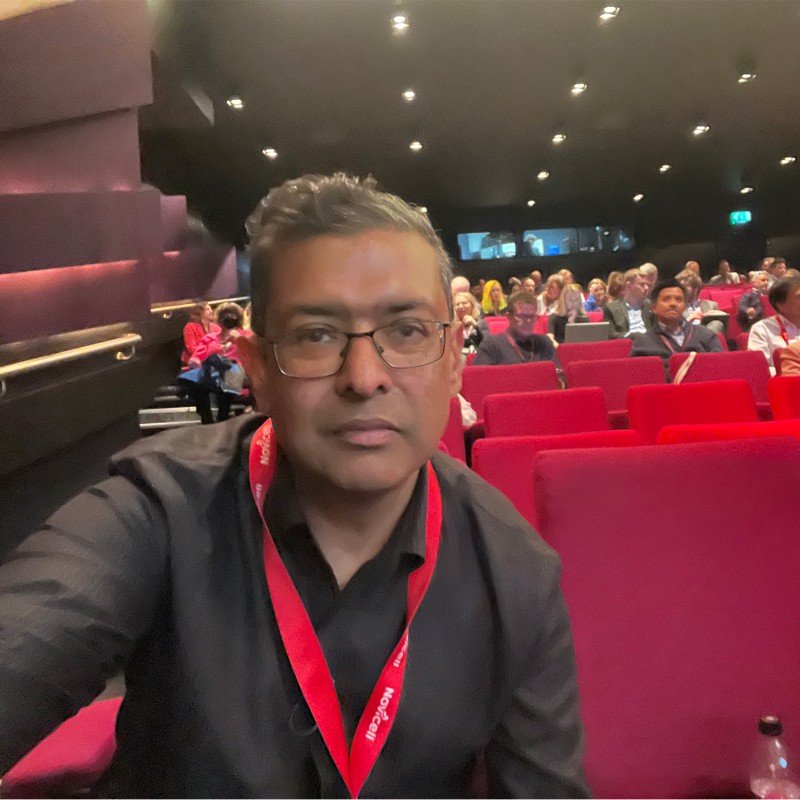By Mahesh Patel, UK community leader
Digital leaders from various sectors gathered in Glasgow for the digital leaders peer group meeting just before the summer holidays. With digital estates growing more complex, AI reshaping user journeys and content expectations changing fast, the meeting sparked some interesting discussion and debate.
As usual the conversations spanned many topics and with the confidential nature of the sessions, the below is not a detailed meeting summary, but rather a Top 5 Takeaways from the day.
Let’s start with the big topic of right now: AI.
1. AI Is reshaping SEO and content strategy.
The conversation focused on how AI tools like Google’s Search Generative Experience and ChatGPT are changing how people access information. These platforms prioritise summarised, content drawn from a wide range of sources, sometimes bypassing websites and collecting information from legacy documents and content that might be historical or archived. As a result, this content may not always be uptodate or correct – this presents a challenge for content authors but one thing to do is close off access to archive content, if possible.
In addition, SEO is evolving into a critical strategy for making content AI-discoverable. Without well-structured pages, clean metadata and updated copy, your content may not surface in AI-driven summaries or voice queries.
With university websites often containing thousands of pages, Emma (Edinburgh) and Rory Hetherington (University of Glasgow) shared how SEO audits and focused optimisation efforts have helped identify priority content for improvement, not just for search rankings, but to help feed AI platforms accurate, relevant information.
Hilton Hotels are tackling legacy content using Bluefish AI, a content analysis platform that highlights duplication, outdated information and poor structure, all of which negatively impact AI visibility and trust.
2. Improving digital experience through Object Oriented UX
Philippe Fara from Renfrewshire Council gave an excellent presentation on Object-Oriented UX (OOUX). This a content modelling approach that structures digital content around real-world entities.
This makes content clearer for both human and AI users and helps prevent duplication across sprawling digital estates. This approach has been used to launch the new website for Renfrewshire – we look forward to some positive feedback from users!
3. Digital Experience Must Now Include Non-Human Users
As AI agents, bots, and voice assistants increasingly interact with websites, there’s a growing need to design digital experiences for both human and machine personas.
Emma Horrell from the University of Edinburgh highlighted the importance of creating dual-purpose content – written clearly enough for AI parsing and nuanced enough to deliver genuine value to real users. Emma also shared insights on piloting AI-powered chatbots to support student experience and personalisation, emphasising that small, low-risk experiments can build confidence and insight.
The idea that AI agents are now 'users' means organisations may need to rethink their audience personas – adding 'machine readers' alongside students, customers, and stakeholders.
4. Content Governance Models Vary – But Structure Helps All
Content ownership was another hot topic. While commercial organisations like Hilton benefit from clear, centralised content governance aligned to sales goals, many universities, like the University of Glasgow & University of Edinburgh, operate with decentralised models. These may result in inconsistent tone, duplicated pages and conflicting priorities.
Tools and methodologies like OOUX, content auditing, and centralised design systems were seen as effective ways to support devolved teams without losing consistency. It was noted that Squiz, is supporting several institutions with their Digital Experience Platform (DXP) to help unify CMS, search, and personalisation in complex, decentralised environments.
5. AI as a Critical Friend – From Drafting to Dialogue
AI emerged as more than just a content consumer, it’s also becoming a valuable co-author and assistant.
The group discussed the idea of AI as a "critical friend": helping to generate first drafts, summarise long content and ask intelligent follow-up questions. With the right prompts, AI can deliver at, or above, human level on many content tasks.
David Strachan from HCL Technologies contributed examples of how HCL is using AI internally for knowledge management and operational efficiency – not only improving content access but reducing manual overhead across global teams.
The group agreed, success lies in using AI intentionally with structure, prompts and clear editorial boundaries.
Final Thought: Designing for the Post-Human Web
The session in Glasgow underlined a powerful theme: AI for content isn’t coming, it’s already here, changing how we design, manage and measure digital content.
From content modelling and SEO to AI-powered assistance and machine personas, it’s time to rethink what “digital strategy” means in 2025.
As one participant said:
"No one technology killed off what came before…but maybe, just maybe, AI is different."
The Boye community offers a vital peer network to help navigate these shifts.
Learn more and be a part of the conversation
The conversation naturally continues at our peer groups, which meet regularly in the UK, mainland Europe and in North America. Join us and be a part of the conversation.
There’s also our upcoming conferences, including HE Connect 25 for higher ed digital leaders held next in late September in Manchester.

